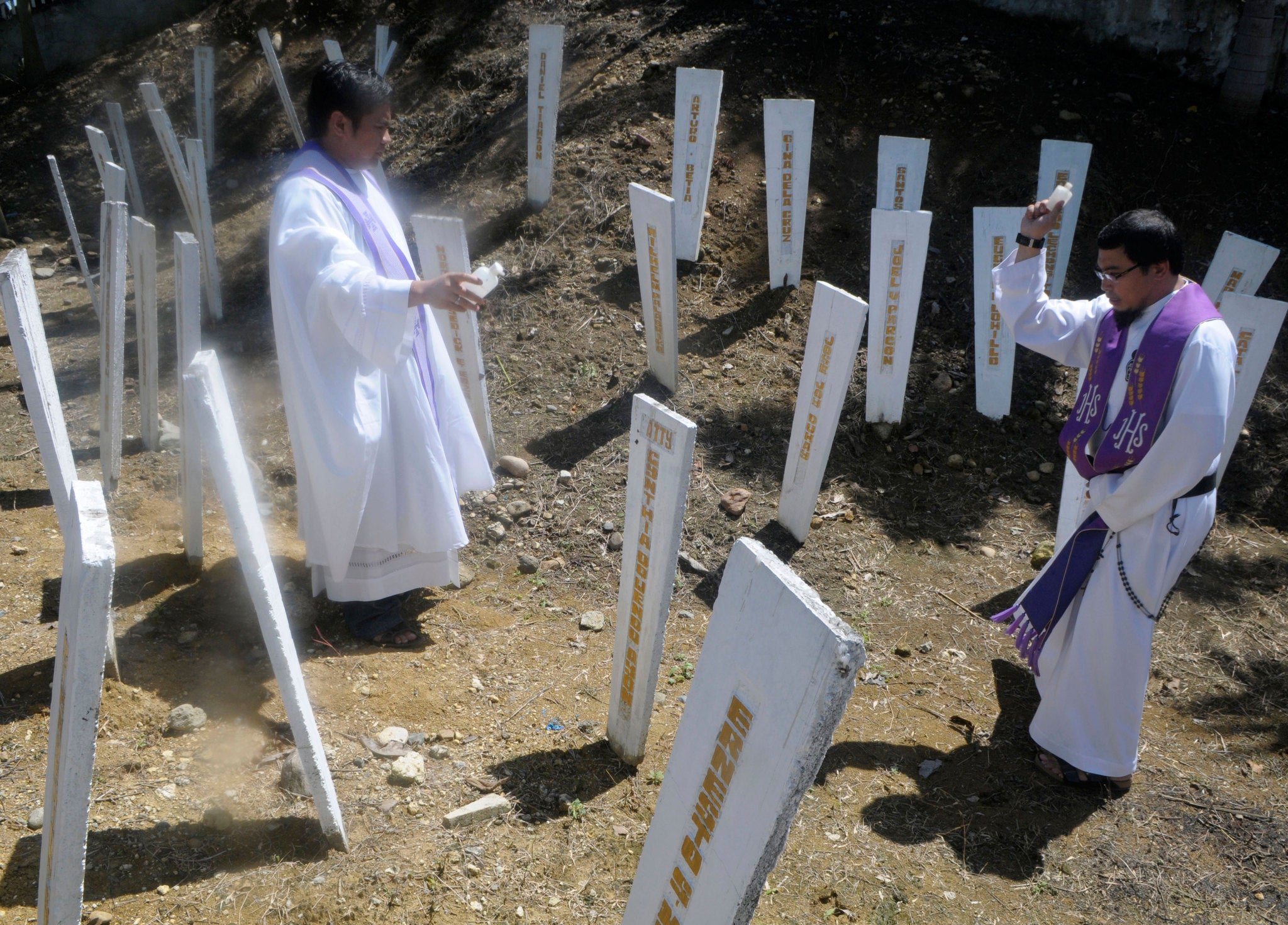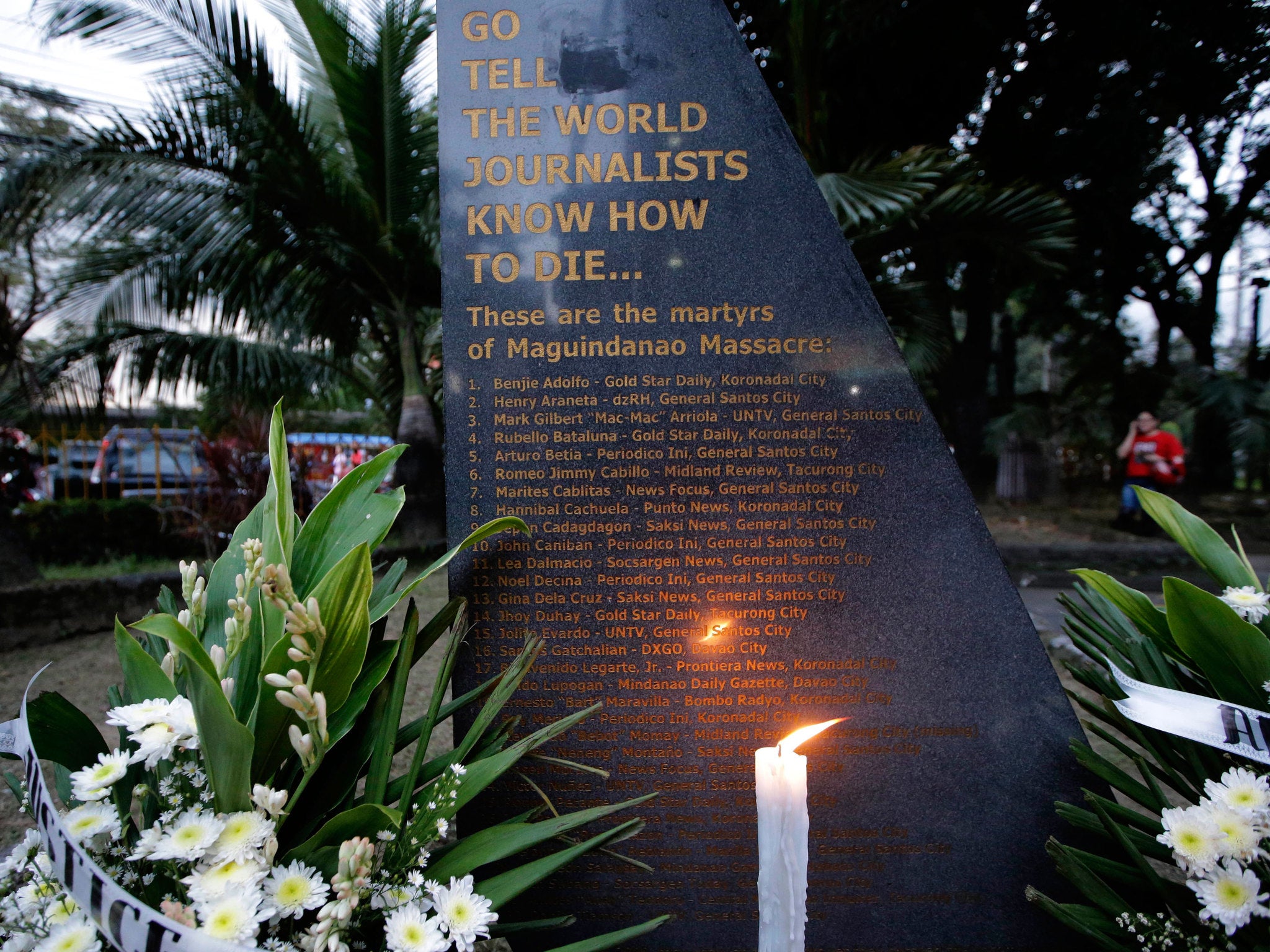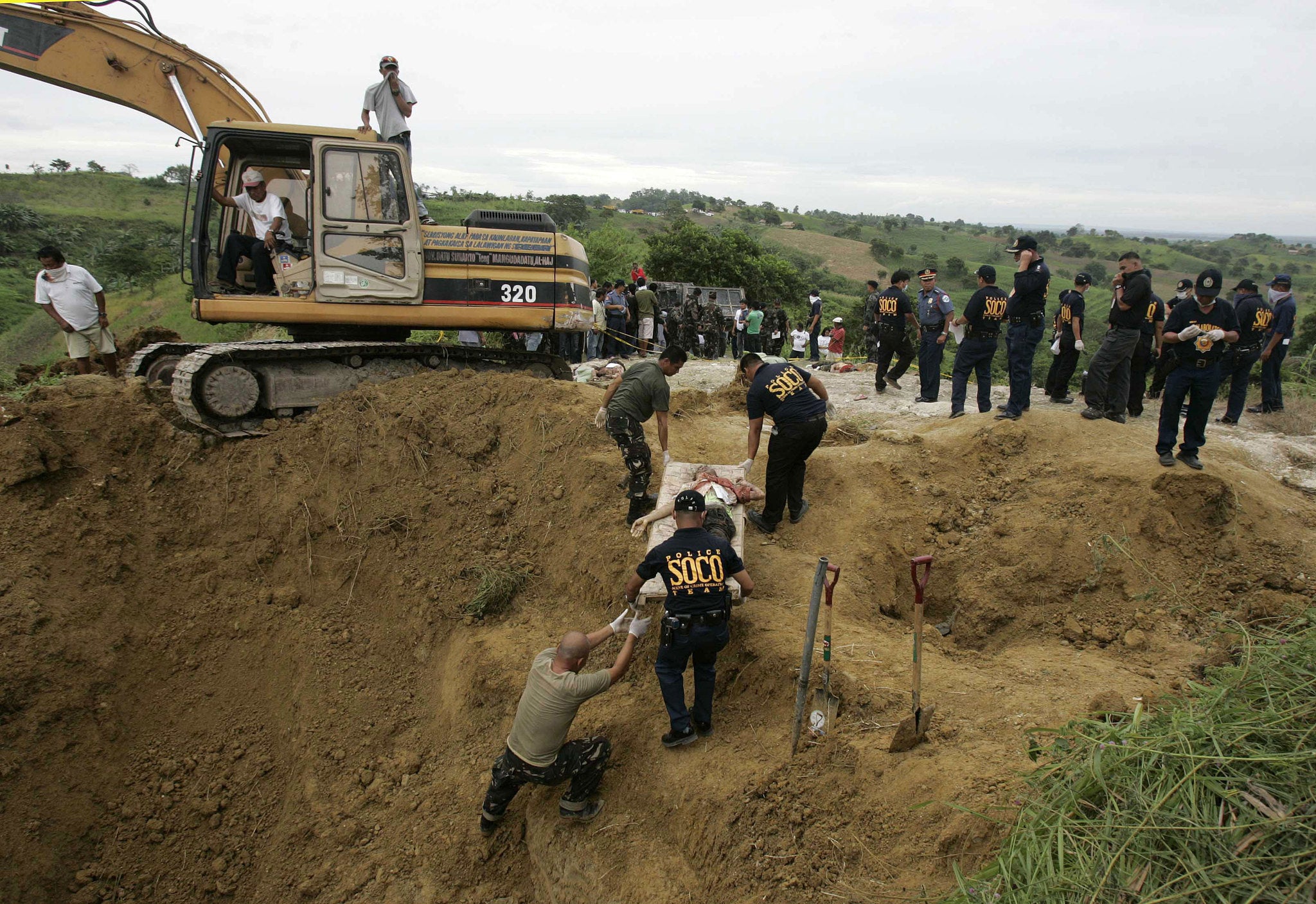Philippines massacre body count is still rising, five years after killing spree that left 58 dead
A witness in the trial into the 2009 murders was gunned down on Tuesday

Your support helps us to tell the story
From reproductive rights to climate change to Big Tech, The Independent is on the ground when the story is developing. Whether it's investigating the financials of Elon Musk's pro-Trump PAC or producing our latest documentary, 'The A Word', which shines a light on the American women fighting for reproductive rights, we know how important it is to parse out the facts from the messaging.
At such a critical moment in US history, we need reporters on the ground. Your donation allows us to keep sending journalists to speak to both sides of the story.
The Independent is trusted by Americans across the entire political spectrum. And unlike many other quality news outlets, we choose not to lock Americans out of our reporting and analysis with paywalls. We believe quality journalism should be available to everyone, paid for by those who can afford it.
Your support makes all the difference.Five years after 58 people were massacred when a convoy was attacked by gunmen in the Philippines' worst political massacre, the body count is still rising.
A witness in the long-running trial was gunned down on Tuesday, just days before the fifth anniversary of the murders, which is marked today.
Members of the Ampatuan clan, who ruled the Maguindanao province, are believed to be behind the 2009 deaths. It is alleged they were trying to prevent their political rivals gaining control in the region.
Families of the victims, including 32 journalists, are becoming frustrated at the slow pace of the trial and the intimidation of witnesses.

Loose gunmen have scared people away from court and prosecutors have said that at least eight potential witnesses have been killed in an attempt to suppress testimony since the trial began.
The latest victims were riding a motorcycle when they were attacked. Dennis Sakal was killed and Sukarno Butch Saudagal was wounded in the violence.
They had both worked for the Ampatuan clan, but had agreed to testify against them, according to Esmael Mangudadatu, the governor of Maguindanao, whose wife and three sisters were killed in the massacre.
Hazel Galang-Folli, of Amnesty International in the Philippines, said: “Each killing of a witness creates a fresh injustice while reducing the chances of justice being served for the families of the victims of this horrific massacre.
“Justice delayed is justice denied,” she added.
The court proceedings are the biggest of their kind in the Philippines since the Second World War. Almost 200 individuals have been charged, 147 witnesses called and a further 300 are set to be questioned before the trial ends.
The Justice Secretary, Leila de Lima, said that the sheer size and complexity of the trial had slowed the process. Recently proceedings have been tied up in bail hearings, which are held two to three times a week.

To speed up the trial, in a country where murder cases can take a decade to solve, a special court has been created specifically to deal with the massacre, with three judges sitting.
The government has strengthened the country’s witness protection programme, but murders are commonplace and testifying against the rich and powerful means taking a big risk.
Esmail Amil Enog, who told the court in 2011 that he had driven gunmen to the site of the massacre, from the home of one of the suspects, was shot dead a year later and his body was chopped to pieces.
It is expected the trial will conclude in 2016.
Additional Reporting AP
Join our commenting forum
Join thought-provoking conversations, follow other Independent readers and see their replies
Comments